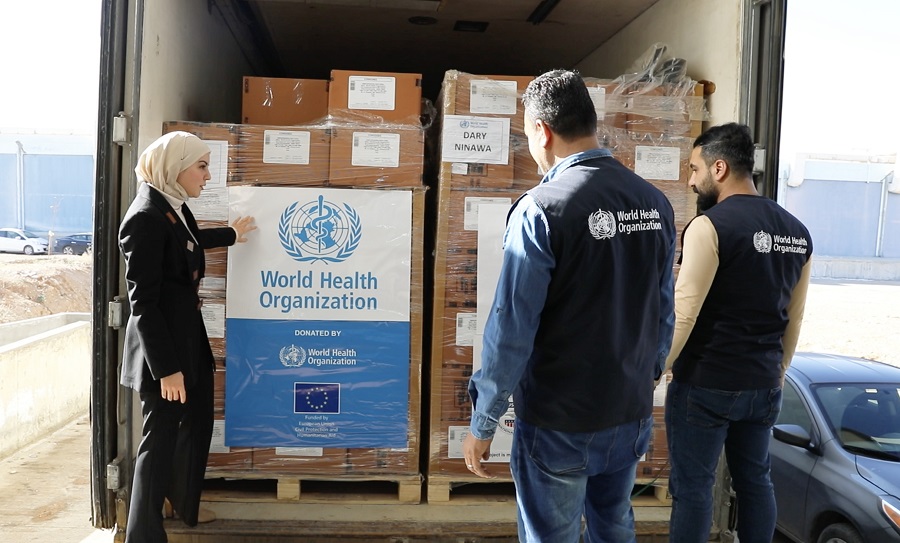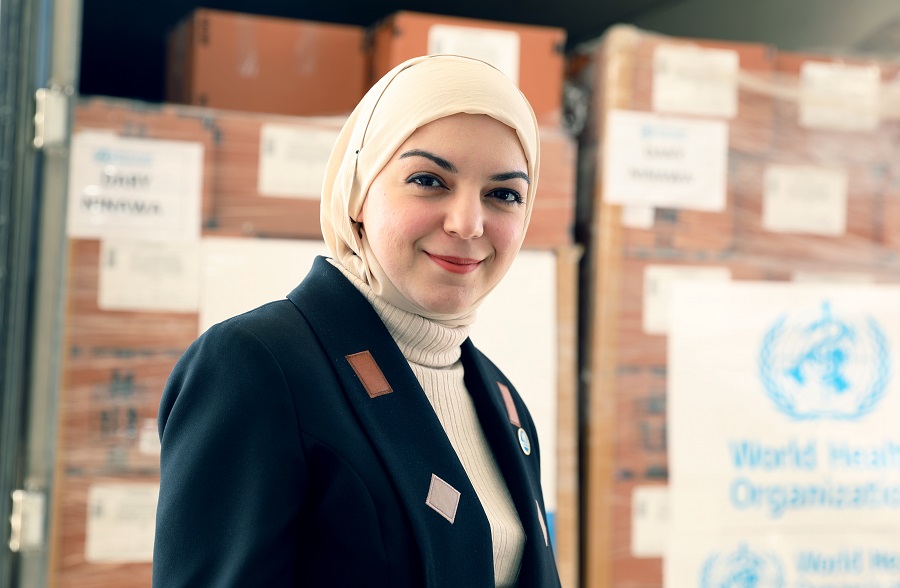 Hajar regularly visits the WHO warehouses in Erbil to verify medical equipment and enquire about physical quantities and storage conditions
Hajar regularly visits the WHO warehouses in Erbil to verify medical equipment and enquire about physical quantities and storage conditions
12 March 2023 – Over the past 6 years, Hajar Abdul-Qader has played a vital role as a supply chain management assistant at WHO Iraq, contributing to the successful delivery of medical equipment across Iraq. Her efforts within the supply management chain have been instrumental in ensuring that essential medical technologies are delivered timely to those in need.
With a keen eye for detail, Hajar supports the supply chain management in Iraq both during emergencies and other public health hazards. Even in the face of tremendous challenges, she worked relentlessly to ensure essential medical equipment are delivered to the right locations at the right time especially during the COVID-19 pandemic.
Hajar spends a normal day reading through spreadsheets, verifying purchase orders, delivery schedules, and coordinating with suppliers and partners. But Hajar doesn't just rely on spreadsheets and emails. She regularly visits the WHO warehouses in Erbil to verify medical equipment and enquire about physical quantities and storage conditions.
 Hajar's efforts within the supply management chain have been instrumental in ensuring that essential medical technologies are delivered timely to those in need"Supply chain management is a challenging field, but it's also very fulfilling. Knowing that I am helping to improve the health situation of my people in Iraq makes all the hard work worthwhile. I am honoured to be part of a team making a real impact in people's lives," Hajar said.
Hajar's efforts within the supply management chain have been instrumental in ensuring that essential medical technologies are delivered timely to those in need"Supply chain management is a challenging field, but it's also very fulfilling. Knowing that I am helping to improve the health situation of my people in Iraq makes all the hard work worthwhile. I am honoured to be part of a team making a real impact in people's lives," Hajar said.
Leveraging her excellent data skills, Hajar also maintains an up-to-date inventory database for all the medical equipment. This involves recording crucial information such as the donor, award number, destination, and device category. Her attention to detail ensures that the WHO Iraq team has access to real-time updates on the status of the medical equipment, allowing for timely and effective decision-making for the dispatch of medical technologies that are crucial for improving the health outcomes for people in Iraq.
"I'm truly passionate about my work, and proud to be a member of the WHO team in Iraq, especially when I see the impact of our collective work that bring us closer to promote health and serve the vulnerable people throughout Iraq," Hajar said.


